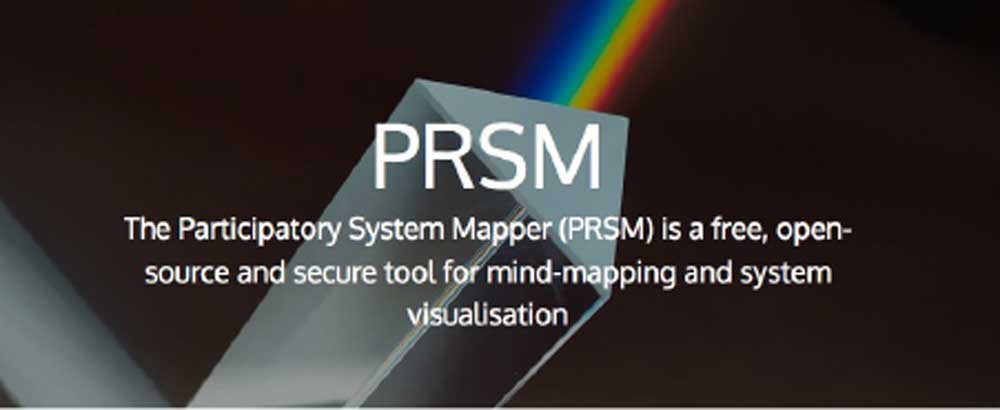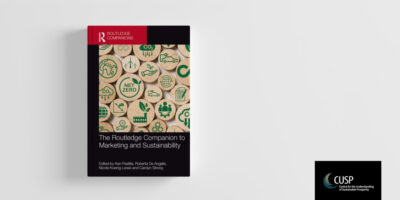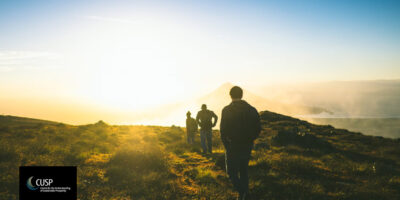Innovations in Politics and Planning for Sustainable, Transformative Action
An event held as part of the University of Surrey’s Economic and Social Research Council’s (ESRC) Festival of Social Sciences (FOSS). Here, Amy Burnett is summarising the discussions.
Blog by AMY BURNETT

Whether democracy and sustainability can generate ecological democracy as a means for cultural transformation has been proposed by CUSP researcher, Marit Hammond. To follow this vein of thought, on Monday the 29th November CUSP hosted a University of Surrey Festival of Social Science (FOSS) event which aimed to deepen our understanding of the relationship between politics and local governance that can affect sustainable outcomes. The event explored the debates around ‘building back better’ in the context of policy reforms such as the Environment Act (2021) and the many climate emergencies that have been declared, with over 300 (74%) of local authorities (district council level and above) having now declared one.
There are some promising signs of social movement-led influence on emerging policy agendas, such as Extinction Rebellion’s call for Citizen Assemblies to enable participatory, bottom-up climate-related decision-making and its influence on the Climate and Ecology Bill. Climate Emergency declarations are also leading to new environmental governance in local decision-making fora, such as multi-stakeholder climate action committees in Devon.
However, local narratives and constellations of climate action are still often divorced from national policies and an overburdened planning system often prevents a deeper, transformative connection between placemaking and a systemic approach to tackling sustainable, or even regenerative, development. In particular, the planning system often does not lead to the most ecologically or socially sustainable outcomes, despite the concept of sustainable development featuring as a key planning principle in the National Planning Policy Framework (NPPF, 2021). New developments are still built in flood plains, overly technical plan-making processes fail to be as inclusive as they should be and well-resourced developers are able to use the appeals process to overturn local priorities for inappropriate planning applications.
Working with local councils is key for effective national delivery of net-zero ambitions as the Levelling Up, Housing and Communities Parliamentary Committee recently announced. Yet, only a third of parish and town councils have declared a climate emergency, which the National Association of Local Councils (NALC) suggests is because “many feel too small to affect change due to a lack of expertise, finance, and power to act” (NALC, 2021). Politics still often doesn’t reach beyond older and White British representatives. While there has been an increase in trust in local government since the pandemic hit, OECD data shows that confidence in national governments around the world is shrinking.
Meanwhile, monitoring and evaluation of climate action is often weak at the local (i.e. town and parish council) level and new solutions are needed to support greater accountability and multi-stakeholder co-production that enables peer-to-peer exchange at scale to contribute to a cosmo-local—that is, globally distributed knowledge that enables locally-produced goods and services—scaling up of solutions that can be adapted in different contexts. As such, there is a need to identify the tools or approaches that can help to capture and corral grassroots momentum for change and progress on actions taken, collectively.
Since 2011, there has been an increase in the percentage of seats held by independents and smaller parties. Our event focused on the role of independent politics to cultivate a different, more inclusive, less adversarial and potentially greener politics.
Summary of the event
Marianne Overton, MBE—an independent councillor and Vice-Chair of the Local Government Association (LGA) and chair of the LGA’s Independent Group—gave her perspective on what independent politics means in the context of seeking tangible action and policy change at CoP26 in Glasgow, the need for urgent action and the role of effective local government and that wellbeing outcomes should be effectively monitored and evaluated.
We heard from Peter Mcfadyen about how the experiences of an independent group of town councillors in Frome, Somerset (UK) are being scaled up through the Flatpack Democracy movement that rejects party-politics in favour of place-focused political strategies (check out the Independent’s for Frome 2015 re-election campaign video, which details how much they achieved in their first administration).
Indra Adnan from The Alternative UK, and someone very familiar with CUSP’s work, spoke about how Flatpack is linked to wider municipalist approaches and are reflective of what she suggests is the ‘Politics of Waking Up’ (which she writes about in her latest book).
Three breakout rooms explored these issues in detail.
- Politics (Politics, Flatpack Democracy, municipalism and cosmo-localism).
- Planning (the role of low-carbon, health and wellbeing outcomes and the challenge of working to achieve these goals in practice at a local level).
- M&E and platforms (Monitoring and Evaluation, accountability and the role of sustainability digital platforms in capturing and incentivising sustainable action).
Each breakout room had a series of overarching questions that the facilitators and speakers spoke to, as well as questions to direct the breakout room discussion captured using open-source participatory mapping software, PRSM developed by University of Surrey researchers based at CECAN. We also discussed these issues in Plenary and thought about how participants could hold ourselves to account and possible actions to work towards the common challenge of securing a more representative, proactive and effective local government and planning system.
Dr. Amy Burnett, co-host of the event, also shared some preliminary findings of her survey (live until 11 February) targeted for anyone who has a responsibility to report, measure or be accountable to climate and ecological emergencies or other sustainable action or framework—including councillors, planners, community groups and the private sector. The findings (based on those who responded by 29 November) reveal that a majority of parish councils have not set a date by which to achieve net-zero, many are not planning to declare a climate and/or ecological emergency and monitoring and evaluation processes are very weak or non-existent at the very local scale.
Community of Practice
We are also keen to build a Community of Practice on these topics. If this is something that would interest you, please email a.burnett@surrey.ac.uk to find out more about how we can collectively explore these agendas for transformative local action by linking with others working on the same issues.
Slides and Recordings
- You can access the Presentation slides here, which includes the polls, wordclouds and the PRSM mapping notes from the event.
- You can access the recording of the event via the CUSP Youtube Channel.
National Flatpack Democracy 2021
Click here to read more about how well the Flatpack Democracy 2021 national campaign did, based on a recent survey carried out by Dr. Amy Burnett of Flatpack candidates and those who supported the movement.
Find out more about the work of our speakers:
- The Alternative UK
- Peter Macfadyen’s Flatpack Democracy Blog
- The Local Government Association
Thank you to Dr. Martha Bicket from CECAN who provided training in PRSM to the co-hosts so that they could document the discussion using the Participatory Systems Mapping Tool (PRSM).




